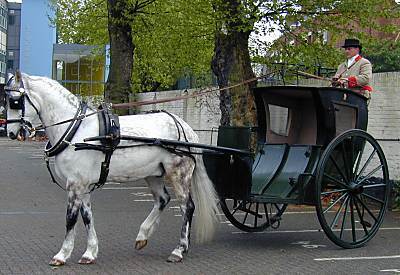
Sam Pizzigati: Let holiday heart go out to the Uber-greedy
Peace on Earth, good will toward men. We honor these noble values every holiday season — and some people actually work to advance them all year long.Other folks, by contrast, mock these values. They spend their days chasing after ever grander stashes of personal treasure.
These greedy souls love the shadows. So a few years back, the inequality weekly I edit for the Institute for Policy Studies began publishing an annual list of America’s top ten greediest. I’ve just introduced this year’s list, bringing tales of plutocrats young and old.
The oldest character on it: the 79-year-old Wall Street mover and shaker Ken Langone.
Langone began making headlines right at the start of 2014 with his advice for Pope Francis. The pontiff, he told New York’s archbishop, should cool it on the inequality front. Papal broadsides against “the powerful feeding upon the powerless,” Langone complained, could leave America’s wealthy “incapable of feeling compassion for the poor.”
Langone himself has always been a generous sort — at least for his friends. As a New York Stock Exchange director, he greased the skids for a $190-million exit package for his buddy, NYSE president Richard Grasso, in 2003
Langone has been a bit less generous to the powerless. As a director at Yum! Brands, the home of Taco Bell and KFC, he cheered on company efforts to oppose hikes in the minimum wage. As he likes to tell regulators: “Leave us alone and let us hire people.”
Home Depot, the retail giant Langone’s financing helped propel to big-box dominance, shows what happens when you leave corporations alone. Big-box giants, notes the research group Good Jobs First, don’t create jobs. They “grow mostly at the expense of existing competitors,” many of them local businesses.
Big-box giants, on the other hand, do create massive concentrations of personal wealth. Forbes now estimates Langone’s net worth at $2.6 billion.
Among the youngest of America’s 2014 top ten greediest: the 38-year-old Travis Kalanick, the CEO and cofounder of Uber, a taxi-like service that lets travelers hail cars through a mobile phone app.
Last January, Uber was running cars in just 60 cities. Now it’s spread to 250 cities — in 50 countries. That growth has propelled Uber’s worth to $40 billion — more than long-established transportation heavyweights like Hertz and United Continental.
Not bad for a company, the AP notes, “that didn’t exist five years ago.” And Kalanick himself, Forbes estimates, is ending the year worth a cool $3 billion.
How has Uber soared so quickly? The company is pumping up profits, critics charge, by taking short cuts like not running adequate background checks on drivers. Officials in Los Angeles and San Francisco have just filed suit against Uber on driver- safety checks, and governments from Spain to India have also taken legal action against the company.
Other critics include customers like Leah Kappen of Indianapolis. She took an Uber ride downtown to the Dec. 6 Big Ten football championship game. That ride cost her $30. The 18-minute trip home after the game cost her $450. This past Halloween, an 18-mile ride home ran New Yorker Elliott Asbury $539.
Uber’s “surge pricing” — a policy that ties rates to the supposed market demands of the moment — generated these outsized fees. But anyone upset by $500 cab fare, says Kalanick, needs to start “getting used to dynamic pricing in transportation.”
Uber drivers are complaining, too. One of Uber’s competitors, Lyft, gives all the extra profit from “surge pricing” to its drivers. Uber takes a 20 percent cut. Why not, The Wall Street Journal asked Kalanick, follow suit?
“We are a business,” he replied.
So much for good will.